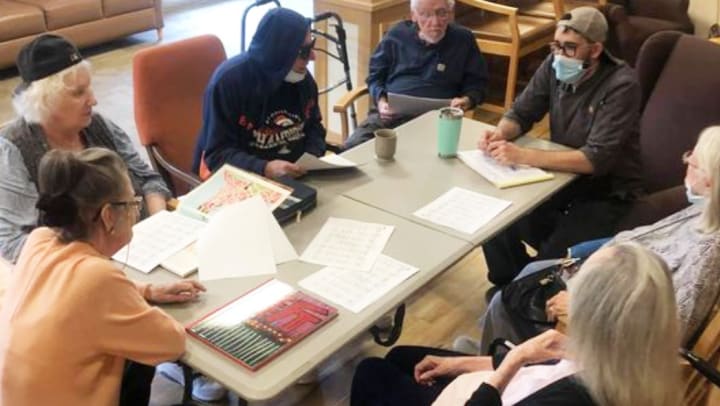
Don’t Assume Mom “Can’t”: Empowering Those Living with Dementia
At our Anthem Memory Care communities our goal is to empower our residents to live full, vibrant lives. While we acknowledge that everyone varies in his or her abilities, we believe that every resident deserves to be treated with respect and should be encouraged to participate in activities that are meaningful to them. That often includes planning activities, outings and even providing input on weekly menus at our communities.
The image on top is of a menu planning session at Chelsea Place Memory Care, in Aurora, Colorado. You’ll notice residents along with staff and the head chef, working together to plan the week’s menu. Not only are these residents capable of making these decisions, they contribute some great ideas as well.
There is a tendency, when a loved one is diagnosed with dementia, to assume that they can no longer think for themselves. Certainly, in mid to later stages, cognitive impairment begins to reach a level where decisions will need to be made for them. However, in the meantime, it’s important to make the most of your loved one’s abilities and encourage as much independence as possible.
Here are some tips to help you get out of the vicious “can’t” assumption cycle:
There is no doubt that your aging loved one with dementia will need more assistance in the months to come. And, yet, a diagnosis of dementia shouldn’t be looked at as a light being turned from “on” to “off”. There are stages to this disease. That’s why it’s so important to resist those assumptions that you must immediately take over every facet of their lives. They still have opinions and ideas. Let them share them with you.
At our communities, we have many residents who continue to do things they have always enjoyed in their younger years; this includes activities such as fishing, basketball, painting, writing, gardening, reading; the list goes on. As long as they are able to do these things and enjoy doing them, we will continue to be dedicated to empowering them.